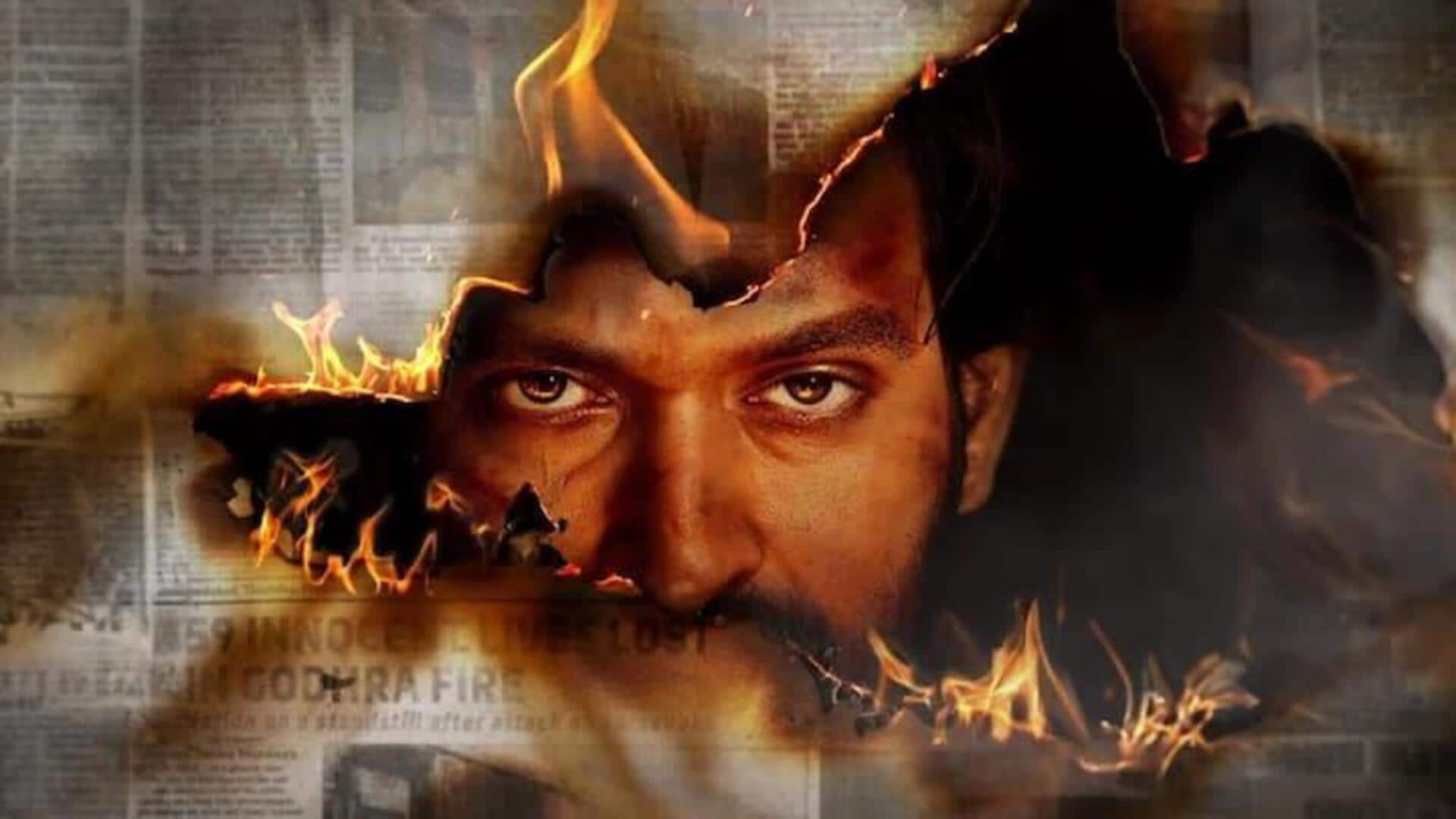
'The Sabarmati Report' review—Vikrant Massey can't save this scattershot drama
What's the story
The Sabarmati Report, directed by Dheeraj Sarna (who replaced Ranjan Chandel), was finally released on Friday after numerous delays. The film, headlined by Vikrant Massey, Raashii Khanna, and Riddhi Dogra, probes the tragic 2002 Godhra train tragedy that claimed the lives of 59 people. Backed by Ektaa Kapoor, it's technically weak and out of balance, ending up as a forgettable film.
Story
Three journalists probe the Godhra tragedy
Samar (Massey), a journalist who covers entertainment at EBT News, is asked to accompany hotshot journalist Manika (Dogra) to Godhra. After reaching there, Manika concludes that the tragedy was an accident and holds the government accountable, while Samar discovers that it was a pre-planned conspiracy. Five years later, Amrita (Khanna), another EBT News employee, joins hands with Samar to bring the truth to light.
#1
Tonal inconsistencies begin in the first scene
The Sabarmati Report, surprisingly, begins with a comedy sequence that doesn't gel well with the film's serious, heavy theme. Samar's character is initially shown as a happy-go-lucky man who doesn't care much about anything, but then he suddenly turns intense and tries to stick to that avatar for the rest of the runtime. Eventually, you can't really take his underdeveloped character seriously.
#2
Looks technically weak, haphazardly shot at times
The film has a typical TV show-esque feel to it and everything is loud and exaggerated. It frequently uses footage from real-life tragedies, and instead of adding to the film, it jarringly breaks the flow. Moreover, Massey's constant, completely needless voiceover burdens the film. TSR's constant urge to simplify everything and lay it out on a platter is one of its biggest undoings.
#3
Done-to-death portrayal of a journalist
There seems to be a manual that tells Hindi films how to portray journalists. Manika's depiction is dipped in cliché, so you can form an opinion about her even before she says her first dialogue. She's always in a hurry, doesn't remember her juniors' names, and flees the room even before finishing a sentence. Where have we seen such journalists? Only in Hindi movies!
#4
Lack of nuance, so you constantly question everything on-screen
Politicians are presented as outright villains from the very beginning. Everyone is either black or white and there is no scope for grey. Plus, the film has already made up its mind about which side it wants to take so to expect any nuance or subtlety is a lost cause. The highly predictable good Muslim-bad Muslim trope is present here, too.
#5
Becomes a government ad at times
At several junctures, TSR feels less like a film and more like an advertisement for Gujarat or an election manifesto. There's an entire sequence dedicated to how Gujarat supposedly became the fastest-growing Indian state around 2007. In fact, the film ends with a clip from the Ram Mandir inauguration! It has no relationship with the main narrative, and yet, there it is.
#6
It's confused about its plot, its characters
The film is only 123 minutes long, but we waste several minutes on Samar's alcoholism track. Once he is thrown out of his job, he resorts to alcohol, and while a few scenes could have done the trick, this subplot trudges on forever. The film struggles with clear presentation: some scenes overstay their welcome, while others are painted in broad strokes.
#7
What works: Performances and some gripping scenes help the film
Khanna, Massey, and Dogra are the saving graces of this haphazard, scattershot film, and ensure you don't doze off! Deeply committed, they deliver even some eyebrow-raising dialogues with conviction, and Massey, naturally, emerges as the best performer of the three. To give credit where it's due, the film also has some gripping, thriller-like sequences that help sustain the momentum in the first half.
#8
Raises a few important questions
Another aspect that partly works for TSR is its exploration of how media has degraded from being the fourth pillar of democracy to one that can be biased and alter perceptions. TSR also probes the ever-widening chasm between Hindi and English and how languages define one's class and level of respect in India. Not well-explored, but crucial points nonetheless.
Verdict
Skip it entirely; 1.5/5 stars
The film seeks to bring a hard-hitting story to light and ensure that we never forget—and, learn from—such tragedies, but it lacks the much-needed nuance to achieve this task. Self-satisfied and consistently mediocre, The Sabarmati Report has a lopsided narrative. It plays the judge, jury, and executioner, and ultimately, that doesn't bode too well for it. You can safely skip it. 1.5/5 stars.